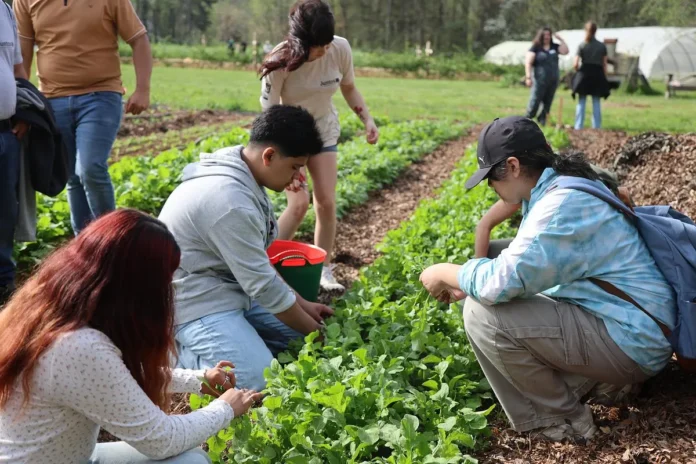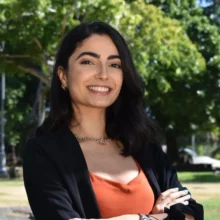Editor’s note: This article was originally published by Enlace Latino NC.
About 40 students from Wake, Lee, Durham, and Sampson counties descended on the Central Carolina Community College (CCCC) farm in Pittsboro, North Carolina, on Saturday to learn about sustainable agriculture.
The experience at the certified organic farm began with a simple but meaningful activity: harvesting fruits.
“My experience with the plants was a lot of fun. I learned a lot about how to pick and cut the plants,” Gloria, one of the students, told Enlace Latino NC.
The event, titled “Our Green Heritage: Building a Legacy in Organic and Sustainable Agriculture,” continued with workshops on sustainable agriculture and the careers offered by this sector. The participating students are members of the organizations Juntos NC, Future Farmers of America, and Student Actions with Farmworkers (SAF).
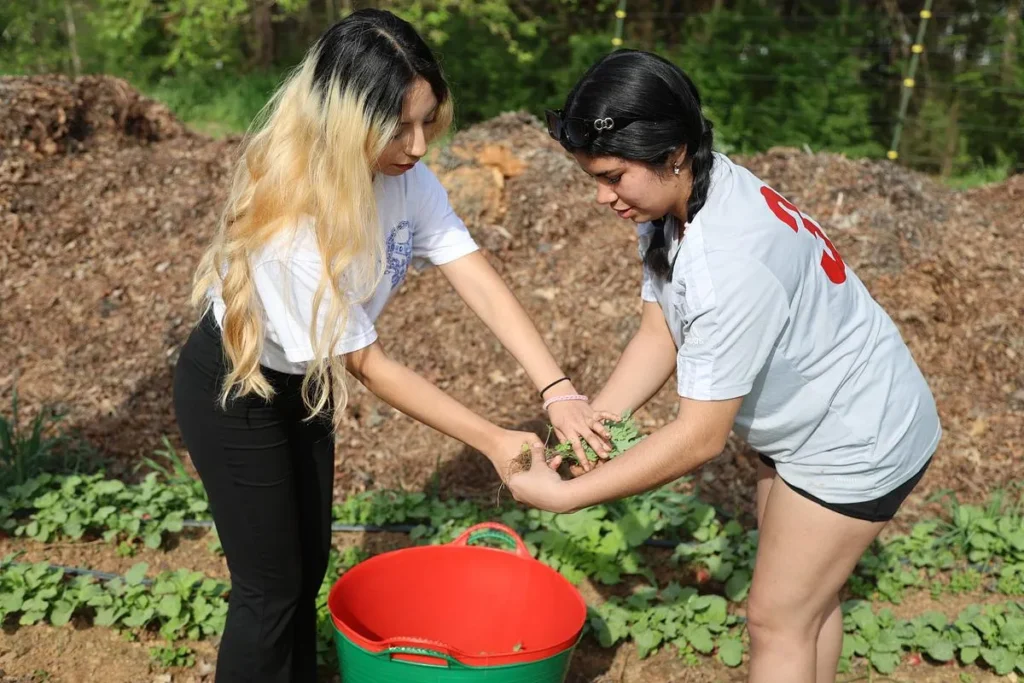
Career opportunities in sustainable agriculture
Once the students finished harvesting, they headed to talks about opportunities in the world of organic and regenerative agriculture.
“Our students are in grades 9-12 and came here for the opportunity to study sustainable agriculture,” said Leslie Mouchet, project manager at Juntos NC, to Enlace Latino NC. “They had time to be on the farm, to learn from the courses offered, and also to learn how to plant and harvest here at CCCC.”
Participants also made connections with agricultural experts that could open doors to future career opportunities.
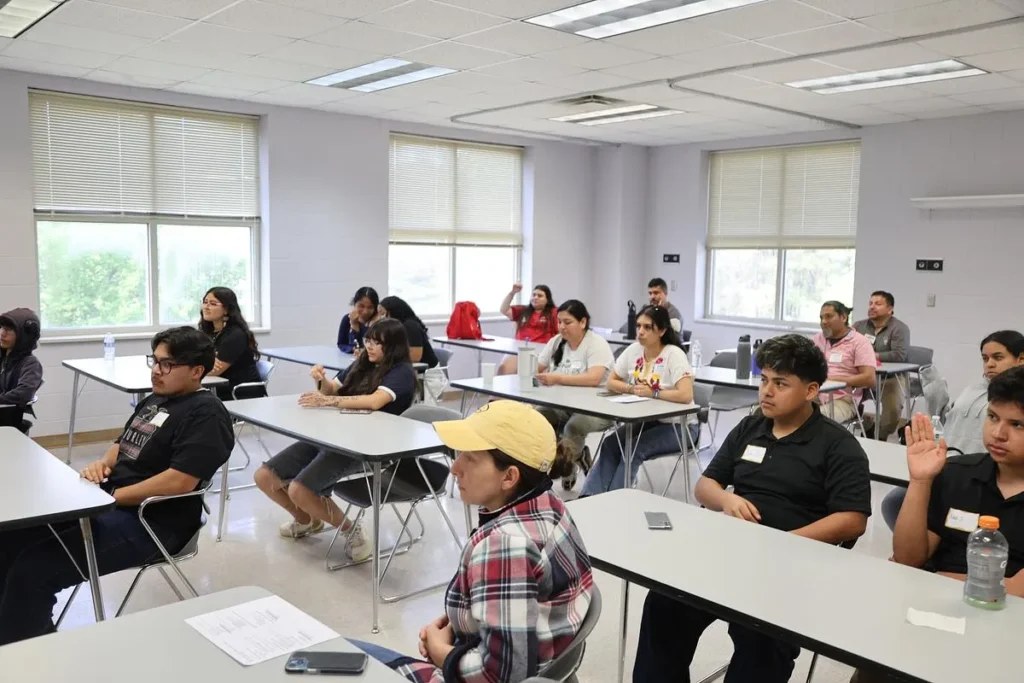
Difference from conventional agriculture
Conventional agriculture, which uses chemicals and fertilizers, is criticized by its negative impacts on human and environmental health.
In contrast, the proposed organic, sustainable, and regenerative agriculture seeks to restore both the health of the land and the dignity of farmers.
The transition to organic farming
Hector Lopez of Hawk’s Nest Healing Gardens shared his journey from conventional to organic farming.
After working on a soybean farm where his colleague became ill from chemical exposure, he recognized the dangers of conventional agriculture.
“When I saw him get sick, I thought, ‘Oh, there’s something wrong here,’” Lopez recalled.
This incident motivated him to study organic farming and permaculture, and he later taught these methods to communities, including women in prison.
“I decided I wanted to learn other ways to farm,” he said, focusing on sustainable and healthy practices.
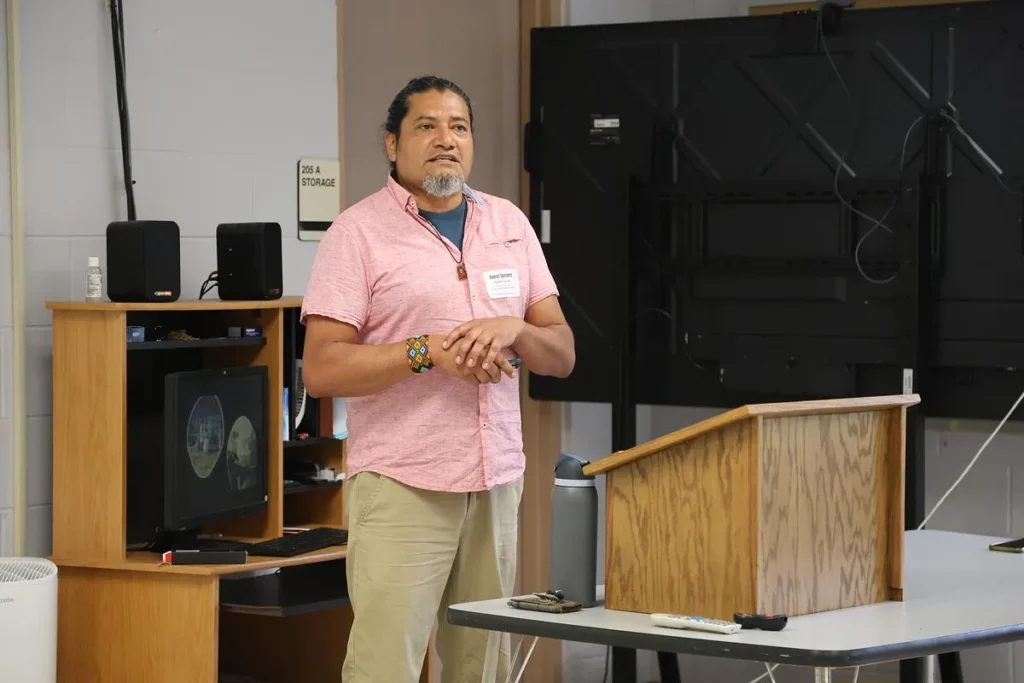
At CCCC, the “Seeds of Change” course teaches safe and sustainable agricultural practices, crucial to improving farmers’ working conditions. The program offers free mentoring to farmers interested in making the change from conventional agriculture to organic agriculture.
Importance of community connection
Anthony Espinoza, a former community college student, shared how regenerative agriculture helped him understand the importance of the connection between producers and consumers.
In his community of Dunn, conventional agriculture focuses on large-scale crops like tobacco and soybeans, which depend on Latino workers.
“In my area, most of the farmers are Latino, but the land belongs to American farmers who have brought their families here for many years,” Espinoza told Enlace Latino NC.
According to the National Center for Farmworker Health, approximately 78% of the 2.9 million farmworkers in the U.S. are Spanish-speaking. But only 3% own their own land.
“The relationship with consumers isn’t as close. They don’t know the people who buy their products,” Espinoza added, referring to conventional agriculture.
In contrast, he said regenerative agriculture promotes direct relationships and sustainability. In this practice, he sees a greater connection between consumers and farmworkers.
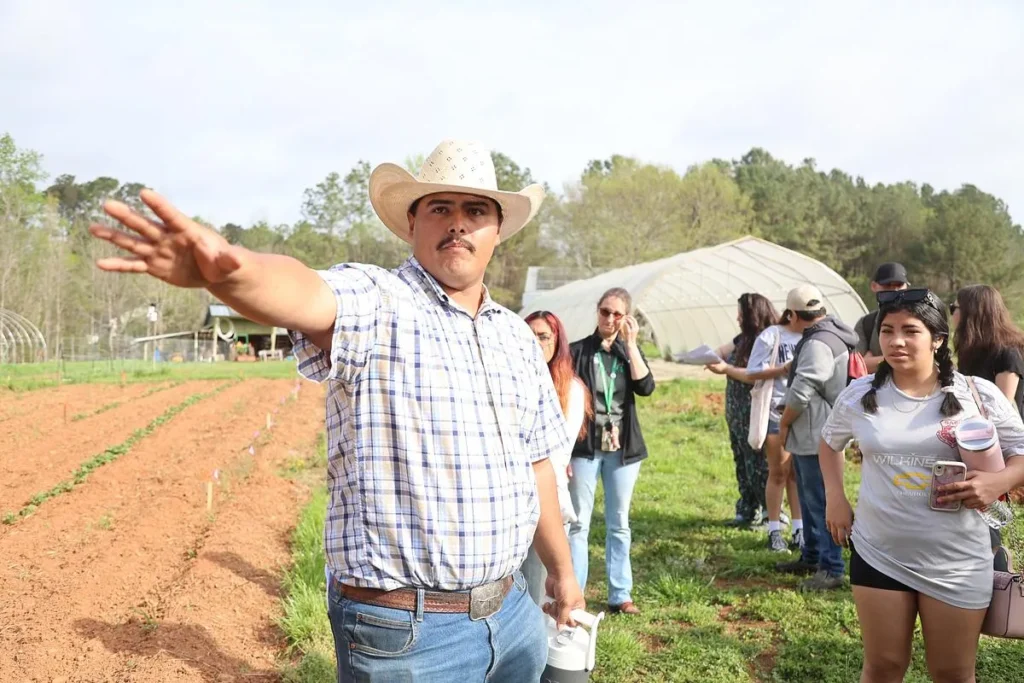
An ancestral link to the future
For many, the event was a unique opportunity to connect with sustainability concepts, which although new, have a long tradition in the latin culture.
Angelina Oliva, a member of the CCCC teaching team, delved into the importance of these types of events for Latino students.
“It’s a very new concept for them, but it’s a very old concept for our culture,” Oliva told Enlace Latino NC. “Latin culture is due to our work thousands of years ago, from our ancestors, who have many of the techniques and practices that now have this name: organic, regenerative, or sustainable.”
In Oliva’s view, connecting Latino youth with their cultural roots while introducing them to opportunities in sustainable agriculture is a powerful way to build a bridge to the future.
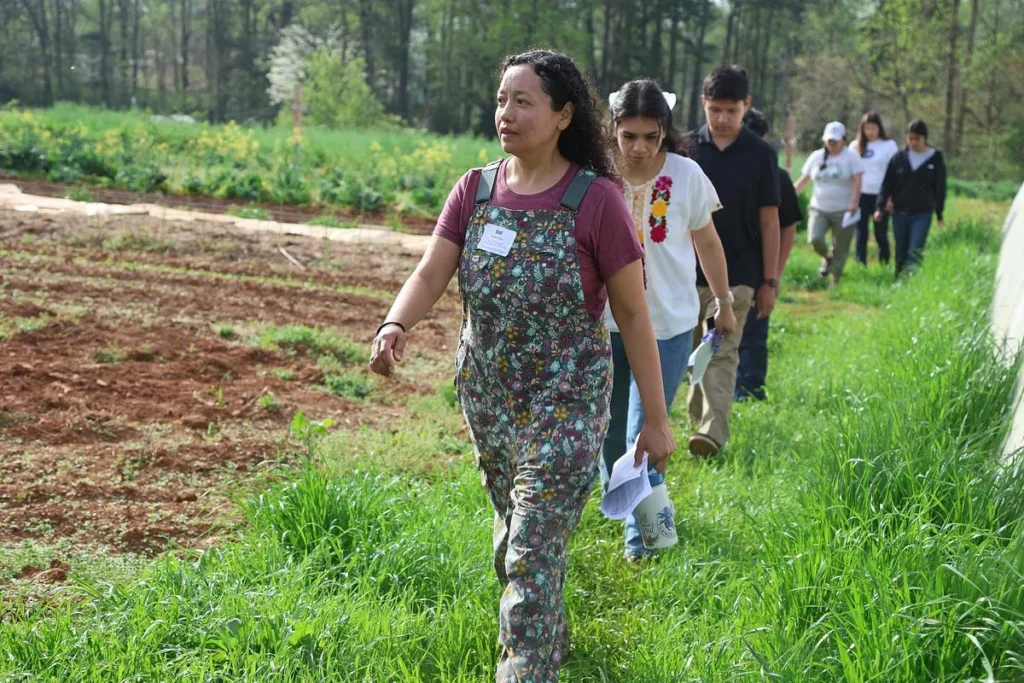
Next event
The community college will host a guided tour in Spanish during the Piedmont Farm Tour on April 26. They will visit three farms: the Central Carolina Community College Student Farm, Harland’s Creek Farm, and Little Way Farm.
This event will provide an opportunity to learn about responsible agricultural practices and connect with the community.
They are inviting farm workers, Latinos, farmers, community leaders, and advocates, as well as people interested in sustainable and organic agriculture.
Transportation from the CCCC Pittsboro Student Farm, lunch, and professional Spanish translation services will be provided.
You can register at this link.


